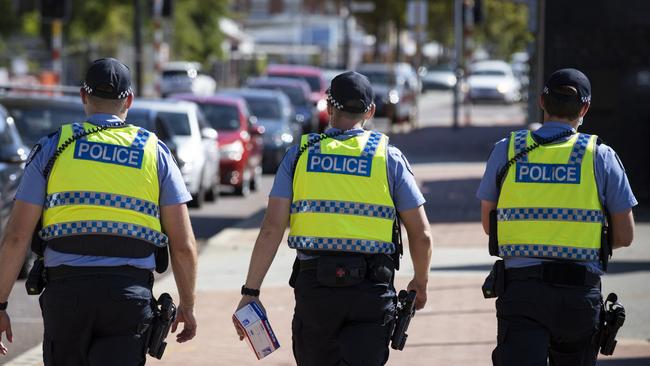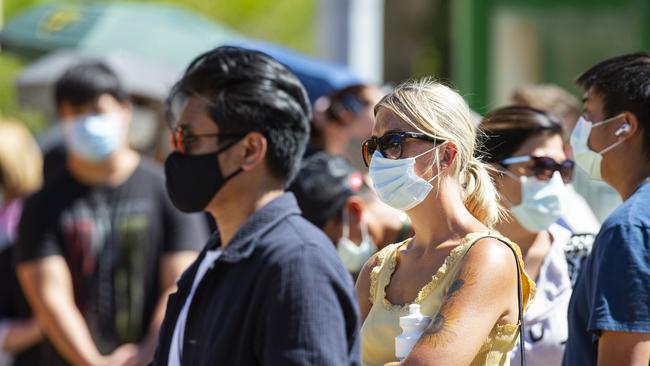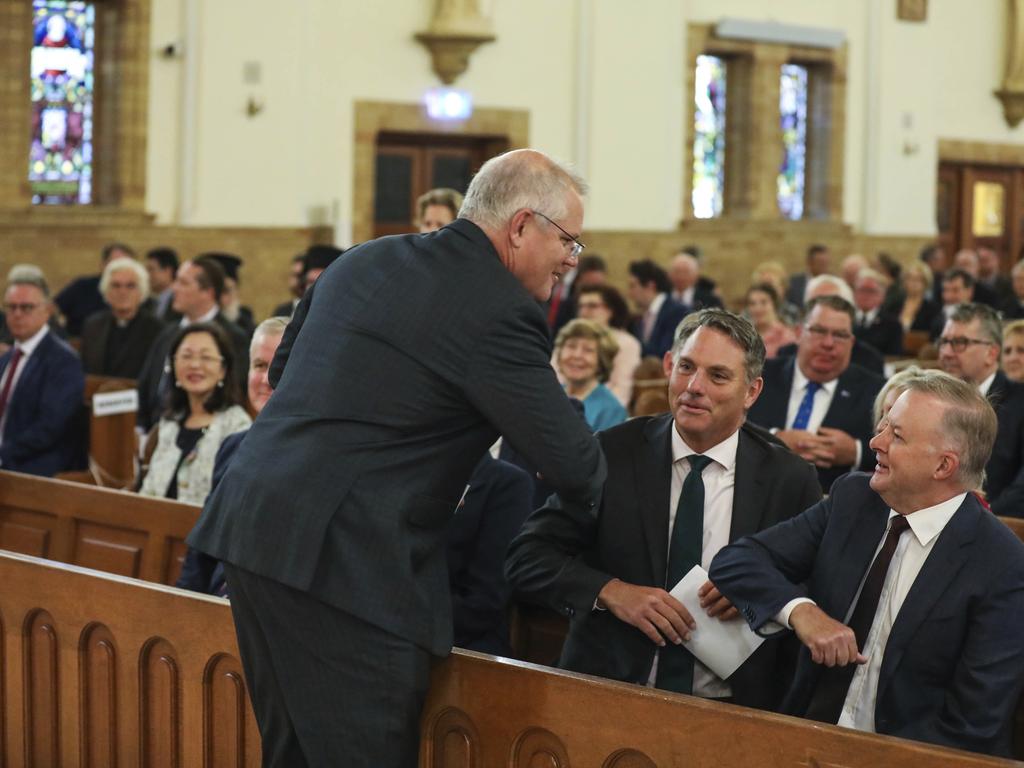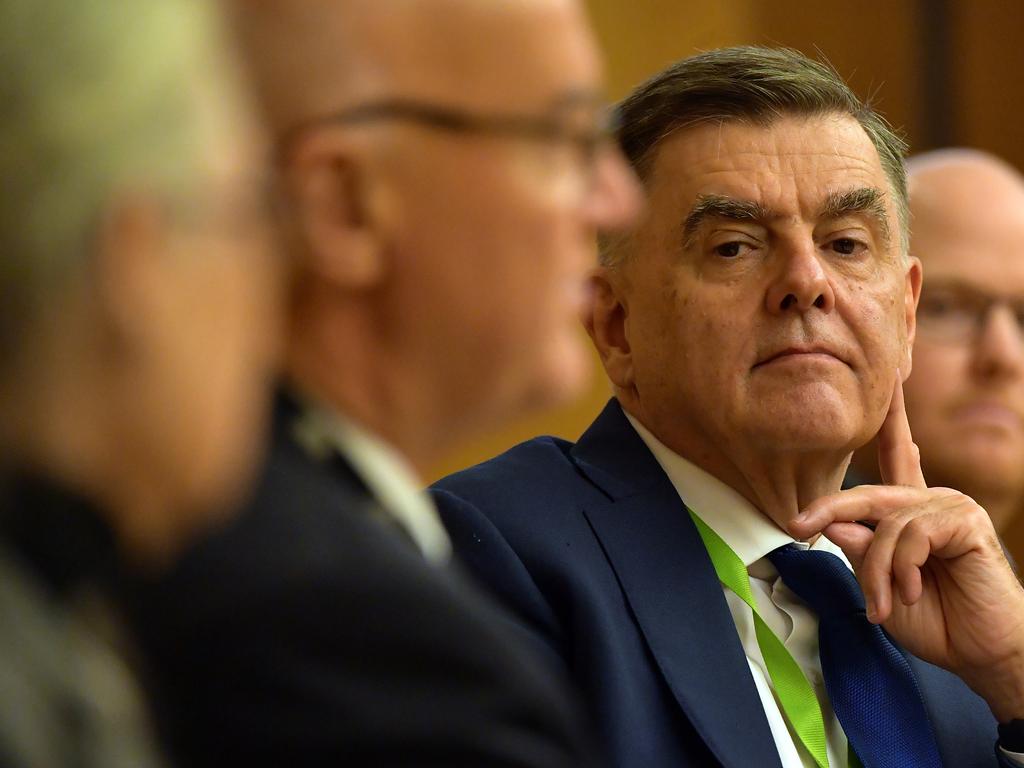Nation infected by the scourge of coronavirus overreach
Take a look around this country. If this is the response most Australians want, then it’s going to be an excruciating year.

This maxim has held true through federal elections and crucial policy debates such as climate change, border protection and gay marriage, and through overseas ructions such as Brexit and the rise of Donald Trump. But in the 12 months that the coronavirus pandemic has dominated all else in this country, and the rest of the world, my faith in mainstream common sense has been shaken to its core.
How can it be, for instance, that two million people can be plunged into lockdown in a West Australian summer because of a solitary infection from the known source of hotel quarantine, yet most of the population applauds? How can unnecessary and damaging lockdowns and hard borders be popular?
We know polls cannot be trusted to accurately measure public opinion on such matters but the support for lockdown fetishists such as Mark McGowan, Daniel Andrews, Annastacia Palaszczuk and Steven Marshall is affirmed by other evidence such as media feedback, public behaviour and the Queensland election result.
Paranoia is everywhere: someone walking in the sunshine on their own, wearing a surgical mask; a masked driver, alone at the wheel, preventing self-infection we presume; or the iconic toilet paper hoarder, triumphantly leaving the store.
Talking up the threat, overdoing the responses and claiming credit for keeping people “safe” is the proven recipe for political success. Yet all the best medical advice, and all our lived experience, shows that this response is creating more pain than is necessary.
NSW proves the point. It has faced the most difficult challenges, especially by hosting most of the hotel quarantine burden, and has handled it with the lightest touch. The other states reel in horror.

This is not to overlook Australia’s success. We should all be grateful for a federal government and agencies, supported by the states, that have competently (except for the Ruby Princess in NSW and the woeful Victorian lapse) taken advantage of our island nation status.
Instead of living an almost blameless existence behind our virus-proof moat, we have unravelled the federation and made things harder for ourselves. We set out to flatten the curve, which made eminent sense, but have become obsessed with eliminating the disease — which would be largely pointless unless we chose never to engage with the world again.
For a year now, I have spoken daily to a wide variety of medical experts about every aspect of the pandemic. Despite the understandable fear and uncertainly in the first quarter of last year, what has struck me is the consistency of the medical advice and the way that the vulnerabilities and protections have been obvious and predictable.
Information has been our friend: it was always best to keep kids at school; outdoor activity was always low risk; winter was always going to make the situation worse; treatments were always going to improve; vaccines were never going to be quite the silver bullet some had hoped; we would never face the same dilemma as densely populated northern hemisphere cities; we were always going to have to find ways to live with the disease; and the crucial decisions were always going to be about weighing risks against responses, costs against benefits. Yet it seems most of the premiers and much of the population are prepared to pay any price to ensure there are no infections at all.
News bulletins lead with reports of a single infection. Perth and Brisbane have been locked down for one infection, one family and a pizza box were enough to close down South Australia, and this week Andrews surprised everyone by not locking down his state after an infection — our expectations could hardly be lower.
When I flew into Adelaide after borders were reopened to NSW in October, we submitted to more rigorous examination than you get at most international checkpoints. Returning from South Australia after Christmas we had to take an outback dirt road to avoid entering Victoria, and there, in red dust north of the Renmark, was an SA police blockade against virus-runners from the east.
One dear friend in SA, admittedly in a vulnerable cohort, declined a catch-up because she believed that as a Sydneysider I posed an unacceptable risk. (I had already tested negative under the state’s stringent regime.) I respected her anxiety, but it was sad. Another mate implored me not to mention our catch-up on social media lest his wife discover he shared a coffee table with a bloke from the Emerald City.
No one should pretend this is easy. In March last year, wondering about how rife the virus would be and if schools might be closed, my wife and I discussed escaping for the space and family connections of Adelaide. But within days Marshall closed the border and eliminated that choice, and luckily we ended up having a relatively normal year in Sydney.
People made judgments according to their circumstances; we eagerly kept our kids at school but others, whose families had regular contact with vulnerable relatives, took the understandable decision to isolate. I was worried sick about my elderly parents but could not cross state borders to see them — Dad was locked down in his aged-care facility and not allowed visitors anyway.
My risk-assessment mettle was tested when I was offered the chance to travel to the US to cover the presidential election. With family responsibilities, it was not an easy choice but I decided to go and am glad I did.
Apart from anything else, the trip gave me a chance to see America’s virus response up close. It was worrying at times, rather than alarming, and overwhelmingly practical and fatalistic compared with ours. But, then, the pandemic was so far gone in the US that they had little choice but to be pragmatic; above all else, Australia’s control has kept open all our options.
But this is why our internal border closures and lockdowns have been so difficult to comprehend. Especially when officialdom has refused to be liberal with exemptions — the balance between risk and proportionate response has been wildly askew.
A sensible country would ensure we did not allow the disease to run amok. But aside from NSW, the states have treated any infection — even if asymptomatic — as a disaster.
People have missed the funerals of loved ones, families have been kept apart, weddings have been cancelled, medical treatments have been compromised, and careers and educations have been crushed. Then there is the economic pain.
Why have so many Australians accepted, even applauded this? Is it because the media and politicians have run such relentless fear campaigns? Is it because at heart many of us are hypochondriacs? Is it because media has avoided facts about mortality rates, treatments and comorbidities while exaggerating the crises in Europe and North America?
Have we all become so reliant on government that we believe our own health can be outsourced to and protected by the state? Are we so mollycoddled in our post-war privilege that we do not know how to keep calm and carry on?
Look around our country. Borders are closed, businesses are shut, people are locked in their homes, uncertainty is everywhere, yet there are only two people outside hotel quarantine who are infected — both from the known source of hotel quarantine. We have heard little about their condition, by the way, which suggests they are not ill.
If this is the response most Australians want, then this is going to be an excruciating year. Last year’s responses have already burdened our children with incalculable debt and lost opportunities; are we now going to double down?
In Western Australia this week firefighters were made to wear surgical masks to guard against COVID-19 while they fought devastating bushfires; the number of firefighters in each truck cabin was reduced, too, to enable social distancing as they bravely protected life and property 40km from Perth’s solitary coronavirus infection. There could hardly be a more powerful demonstration of warped priorities when it comes to relative risks, immediate threats, and proportionate responses.
Still, it seems my incredulity leaves me in the minority. Perhaps something significant has changed in this country during the past decade.







It is a decade this week since I returned to the media, after a dozen years mainly in politics, to write for this peerless newspaper. And there has been one fundamental belief (let’s call it a truism) that has guided my assessments, analysis and predictions — it is that mainstream voters, en masse, invariably demonstrate greater judgment and wisdom than the political/media class presumes.